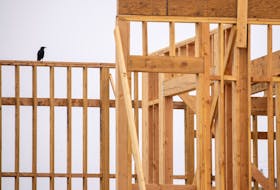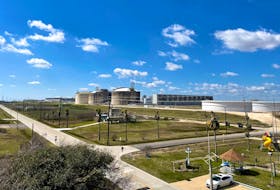
Death and taxes.
Two words guaranteed to instill a sense of dread, or at least an uncomfortable feeling, in most people.
And, as the saying goes, both are inevitable. Inescapable.
While, for most people, the T word doesn’t usually rear its ugly head for a couple more months, in St. John’s it’s doing the rounds as city council works on its municipal budget for the coming year.
Like everyone else, the city is seeing costs going up.
Back in September, Telegram reporter David Maher reported on some of the extra costs the city is facing: a power bill of $10.3 million is expected to increase to $16.3 million by 2021; debt payments are up by $3.4-million; a $1-million increase in city salary costs; another $606,000 for Metrobus salaries; an $808,000 increase in fire protection costs.
The city has been trying to reduce costs and find efficiencies. It has frozen management salaries, kept new hires to a minimum, cut cellphone costs and eliminated car allowances, among other moves.
But it also faces a major revenue drop. While St. John’s property assessments aren’t out yet, the trend across the province has seen residential values decreasing — meaning the city could face a dip of between $8 million and $15 million in residential tax revenues. And residential taxes make up about 32 per cent of city revenues.
Faced with that kind of financial pressure, earlier this year Coun. Dave Lane, head of the city’s finance committee, made it known that city taxpayers are probably facing an increase in the next budget. The city has to balance its books and the extra money has to come from somewhere.
It was suggested residential taxpayers might face a mill rate hike of between 0.4 and 0.6 points. On the current mill rate of 7.3, that would mean if your home is valued at $300,000, your tax bill would go up by about $220.
Commercial property owners make up 25 per cent of the city’s annual revenues. They could face a mill rate increase of between 1 and 1.9 points. The mill rate for a commercial property with water and sewer services is currently 24.7. I just scanned commercial property listings and found a nice two-storey commercial building for sale at $1,090,000. Based on the proposed increase, the owner of a building like that could face a tax bill of between $28,103 and $28,994.
A big concern for business owners is that values for commercial properties have actually increased a bit. If that holds true in the St. John’s assessments, commercial property owners could see their city tax bill go up anyway, tax hike or no.
Over the summer, the city held budget consultations, gathering input on how it can balance the budget. Friday, the St. John’s Board of Trade brought together some of its members to get their take on how they’d like the city to approach the budget.
The session was closed to the media, but board chair Andrea Stack summed up some of the concerns that were expressed.
“Our members feel like the taxation that we have as individuals in the city of St. John’s is high on all levels, through all levels of government. So we’re pushing for the city to find efficiencies and reduce where they can,” she said.
It could be efficiency initiatives to save money on energy, looking to public-private partnerships to pay for major municipal infrastructure projects, or reviewing core services.
“Finding what is spent in other jurisdictions and seeing how our spending sits relative to other jurisdictions, like Halifax or other cities,” Stack said. “Seeing what our core services are, what needs to be offered and doing that more efficiently and more cost-effectively.”
Bottom line is, Stack said, raising taxes shouldn’t be the automatic reflex when faced with a projected shortfall.
“We don’t feel the answer should be ‘Oh, here are our costs, what do we need to charge the residents of St. John’s?’” Stack said. “We feel they should be looking internally and find what a fair tax rate should be for the city.”
And the level of taxation matters, Stack said; matters deeply.
“I think there are businesses out there that are feeling like the tax burden that they’re facing from all levels of government is getting too high and they’re considering does it make sense to stay in business?” she said. “It’s a tough economy out there and at the end of the day we think the government at all levels should be looking to do what they can to reduce taxes and help keep the economy moving.”
Mark Vaughan-Jackson is The Telegram’s Business editor. He can be reached via email at [email protected]. If you’re worried where your municipal taxes are headed and want to share your concerns, drop me a line.
Related story:

![["St. John's City Hall. — file photo"]](https://saltwire.imgix.net/st-john-s-city-hall-2235000.jpg?cs=srgb&fit=crop&h=568&w=847&dpr=1&auto=enhance%2Cformat%2Ccompress)







